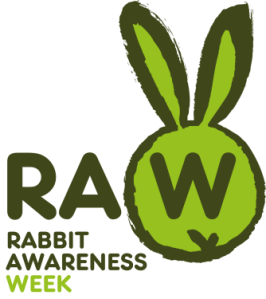The month of May is when we focus on rabbits and their welfare. For more details of the campaign, please see their website here
We would like to take this opportunity for rabbit owners to come into our Hillmorton surgery for a free appointment with one of our nurses to have their rabbit checked over to make sure they are doing ok.
We would like to take this opportunity to highlight all the different aspects involved in keeping rabbits as pets, who require just as much attention and care as dogs and cats.
Introduction
Rabbits are rapidly becoming one of the post popular pets in the UK. Thankfully, rabbits are no longer being considered to be a ‘disposable’ pet and being recognised by all as the delightful, complex and rewarding pets they can be.
As with the other popular dogs and cats, rabbits need daily care, grooming and companionship. Daily interaction and inspection is essential in keeping your rabbit fit and healthy.
Rabbits come in a variety of sizes, colours and coat types (currently there are 61 different breeds!) They vary greatly in size from the Netherland Dwarf who weighs in at under 1kg to the Flemish Giant who can weigh a hefty 10kg! They are very clean animals, can be trained to use a litter tray and may live as a house pet or be kept outside in suitable housing. The average life span of a rabbit varies between 7 to 8 years of age, however some can live over 10. The sexual maturity of females is around 4—9 months and for males is 6—10 months.
Companionships
Rabbits are sociable animals and it’s better to have more than one. Ideally they should be of similar sizes and introduced to each other at an early age (6 weeks) where they can then form strong relationships. Rabbits from the same litter get on well, but should always be neutered when old enough. Unrelated females generally tolerate each other given enough space, but
may still fight. Unrelated males will almost certainly fight and can inflict nasty injuries. In both cases, neutering is ecommended to improve the situation.
NEVER keep rabbits with guinea pigs or chinchillas. They have different food and housing needs and may fight.
(Part 2 to follow: Diet & Exercise and Stimulation)
